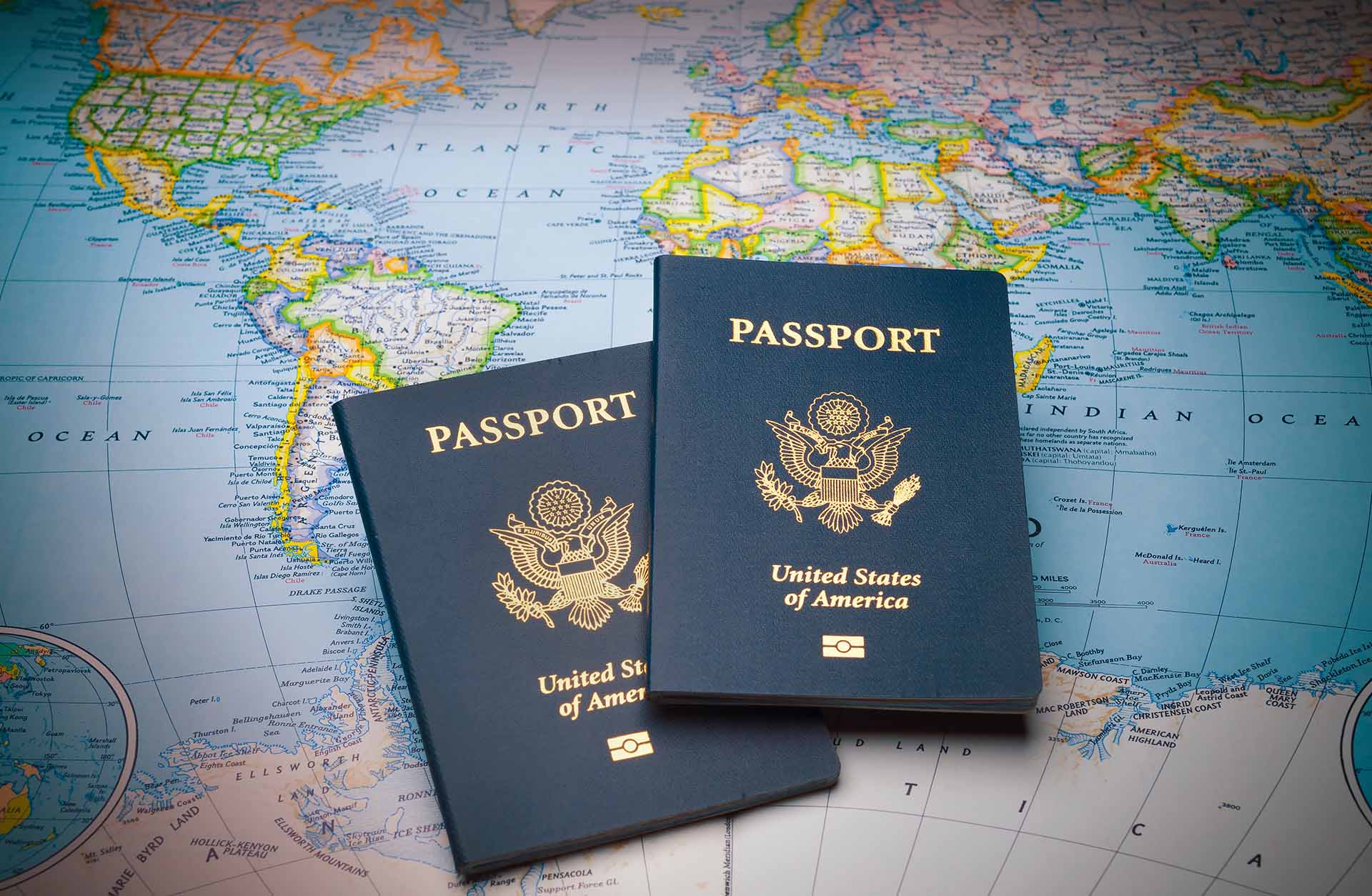Embarking on a move is an exciting chapter filled with the promise of new experiences, cultures, and adventures. Yet, it also brings unique challenges that require careful planning and organization. This is why having a list of things to do before moving internationally is essential to ensure a seamless transition.

The things to consider when moving internationally can be a great moving abroad checklist. Learn the importance of researching your destination, evaluating your financial situation, organizing paperwork and legal matters, sorting and downsizing, hiring international movers, getting healthcare and insurance, and informing others about relocation. Dive in and prepare for a seamless, exciting transition to your new home.
#1 Research and Understand the Destination Country
Among the first things to do before the relocation is to research and understand the destination. Whether you’re shipping overseas to relocate to the UK or planning a move to Germany, getting a solid grasp on your future home is pivotal.
This understanding extends to learning about its culture, customs, language, cost of living, and legal requirements. It may even involve the exciting challenge of learning a new language.
Familiarize Yourself With the Culture, Language, and Customs
Whether you plan on moving to Taiwan, wish to relocate to the UAE, or any country with a distinct culture and language, research becomes crucial. Adjusting to different social customs and etiquette can be challenging, but it’s also part of the adventure.
Spend time familiarizing yourself with the local culture, language, and customs to avoid potential culture shock. Even a basic understanding can go a long way in making your transition smoother and more enjoyable.
Research the Cost of Living
Part of the planning should include researching the cost of living in your destination city or country. If you’re planning to relocate on a low budget, this research becomes vital to ensuring you can maintain a comfortable lifestyle.
Whether you’re eyeing one of the best cities to live in Europe or considering a quieter location, knowing the cost of housing, utilities, food, transportation, and other expenses can help you budget effectively.
Learn About Visa Requirements and Any Necessary Documentation
Another component of your research should be understanding the visa requirements and necessary documentation for relocation. You should have a clear idea of the documents needed for relocating overseas, ranging from visas and work permits to health certificates and more.
Adjusting to a new country can be complicated, so ensuring all your paperwork is in order before you go can reduce unnecessary stress and complications. Consulting with an immigration expert or legal professional can be beneficial in this process.

#2 One of the Vital Things to Do Before You Move Is Evaluate Your Financial Situation
Indeed, assessing your financial readiness is paramount when planning for an international move. It’s more than just having enough funds for relocation; it’s about ensuring the means to sustain your lifestyle in the new country.
This is especially true if you plan on living in Europe as an American, for instance, where the cost of living may vary significantly compared to your home country. Furthermore, it involves ensuring a stable income source, which may mean finding a job abroad before relocating.
Create a Budget for Relocation Expenses
Creating a comprehensive relocation expenses budget is the first step in assessing financial readiness. This budget should include all potential costs, including mover fees, shipping overseas costs, visa application fees, travel expenses, and the first few months’ living expenses in your new home.
It’s crucial to balance your finances abroad so you can have enough to cover these initial costs without running into financial trouble. Remember, it’s always better to overestimate prices to prepare for unexpected expenses. Below is a video of a girl with some relocation experience talking about budgeting when relocating on your own.
#3 Organize Your Paperwork and Legal Matters
Key tasks of an international moving checklist are organizing paperwork and settling legal matters. This step includes gathering and organizing important documents, notifying relevant institutions that you’re relocating, and seeking legal advice for complex matters.
Start by gathering documents vital for relocation. These typically include passports, visas, birth certificates, marriage certificates, medical records, and documents you might need in your new country. Ensure they’re all up-to-date and valid for the duration of your move.
Notify all relevant institutions of your impending relocation. This includes banks, insurance providers, government agencies, and any organizations that should be aware of your change of address. You’ll continue receiving notifications and potentially prevent identity theft.
If you’re dealing with complex legal matters like obtaining work permits (many jobs for Americans in Europe require them,) navigating property ownership laws, or dealing with taxation issues, it may be wise to seek legal advice.
Legal professionals and immigration experts can help you understand your destination’s laws and regulations, ensuring you comply and avoid legal problems down the line. This is especially important if you’re unfamiliar with the country’s legal system.

#4 Sort and Downsize Your Belongings
Moving internationally often involves a significant downsizing of your belongings. This is not only a practical consideration due to the cost and logistics of transporting a large number of items overseas but also a chance for a fresh start. To make this process more manageable, consider the following steps:
- Create a comprehensive moving-out list. This will give you an overview of what you own and help you decide what to take and what to leave behind,
- Sort your items into categories such as ‘keep,’ ‘sell,’ ‘donate,’ and ‘discard.’ This will make the process of downsizing more organized and manageable,
- Hold a garage sale or list items online to sell unwanted items. Alternatively, donate items in good condition to local charities,
- Once you’ve decided what to keep, start gathering packing materials. These can include boxes, bubble wrap, packing tape, and other supplies.
Start Decluttering and Packing Well in Advance to Avoid Last-Minute Rush
Decluttering and packing are two tasks that often take longer than expected, especially if you’re figuring out how to relocate for the first time. To avoid the last-minute rush, start this process well in advance of your moving date.
This will give you ample time to decide what to keep, organize a garage sale, donate items, or properly discard items that are not needed anymore. Packing in advance also allows you to carefully wrap and protect your items, reducing the risk of damage during shipping.
#5 Arrange to Move With an International Moving Company
Hiring a reputable international mover can greatly ease the stress and logistics of traveling overseas. But how do you go about selecting the right one? Start by researching various international moving services.
Look for companies with good reviews, reliable customer service, and a track record of handling international moves. Once you’ve shortlisted a few, obtain multiple quotes to get an idea of how much a moving company costs.
Compare these quotes not just based on pricing but also consider the range of services provided and their insurance options. Remember, the lowest quote may not always provide the best value or service.
Use More Than One International Moving Service
Depending on your needs, you may want to consider using more than one service. For instance, you may hire a packing service to properly pack your belongings and ensure they are ready for relocation. Additionally, you may require a car shipping service if you plan to take your vehicle with you.
Remember, it’s customary to tip movers for their service, so include that in your moving budget. Each service has its own set of experts, and utilizing them can help ensure your belongings arrive safely and intact at your new home. Always review your options carefully and choose the services that best suit your needs and budget.
#6 Plan for Healthcare and Insurance
Healthcare and insurance are critical considerations when relocating overseas. You’ll want you and your family to have access to quality healthcare services in the new country and that you’re appropriately covered for any medical needs.
Start by researching the country’s healthcare options. This includes understanding the level of healthcare services available, the standard of medical facilities, and how health insurance works there. For instance, some countries have public healthcare systems, while others rely more on private health insurance.
You’ll also need to determine if you need additional health insurance. This could be a temporary policy to cover you during the transition period or a more permanent solution if the healthcare in your destination is primarily privately funded. Some countries may also require certain vaccinations before your arrival, so check and plan for these ahead of time.
Consider the logistics of your current healthcare needs. This means transferring medical records and prescriptions to ensure continuity of care. If you’re flying with prescription medication, check with the airline and customs to ensure you can legally bring them to the destination and have enough supply for your initial stay.
Healthcare is a personal and often complex matter, so take the time to thoroughly research and plan for your needs in your new home. It’s always better to be over-prepared in this aspect, as it significantly impacts your well-being and quality of life.

#7 Stay Connected and Inform Others
Staying connected with your friends, family, and relevant institutions is an essential part of the relocation process. Doing so ensures a smooth transition and helps maintain relationships, even when you’re miles away. Consider the following steps to stay connected:
- Notify friends and family – Inform your loved ones about relocating and provide updated contact information. You might even want to create unique relocation announcements as a fun and personalized way to share the news,
- Notify relevant institutions – Inform relevant institutions about relocating. This includes banks, insurance providers, and government bodies. Ensure they have your updated contact and address details,
- Provide a new mailing address or set up mail forwarding – If possible, provide a new mailing address to anyone who might need to send mail. If you don’t have a new address yet, consider setting up a mail forwarding service,
- Utilize digital communication tools – Tools like Skype, WhatsApp, and FaceTime make it simple to stay in touch with friends and family. Regular video calls can help maintain relationships and keep you updated on events,
- Join social media groups – This can help you meet new people, learn about local events, and stay informed about what’s happening in your new community.
While it’s exciting to immerse yourself in a new culture and environment, maintaining connections back home is equally important and beneficial for a smooth transition.
With a List of Things to Do Before Moving, You’ll Have a Smooth Transition Overseas
Embracing a new life chapter in a different country can be exhilarating, but it can also come with its fair share of challenges. By keeping track of the essential things to do before relocation, you can navigate this transition more smoothly and with less stress.
Whether you’re researching the right overseas shipping company to transport your goods, or selecting the perfect overseas moving company to handle your relocation, staying organized and proactive will make a world of difference.
I Love International Moving is the company for you, dedicated to making your international relocation seamless. From packing to navigating customs, I Love International Moving can guide and support you in every step.
Ready to get started? Reach out to us today and get your adventure started on the right foot.
FAQ
Understanding the destination country is important as it prepares you for what to expect and helps adapt easier. This includes understanding the culture, language, cost of living, customs regulations, and healthcare systems.
Evaluating your financial situation involves understanding your current income, savings, and expenses and estimating relocation costs. To create a budget for it, consider travel expenses, shipping belongings, housing in the new location, cost of living, potential income, and unexpected costs.
Essential documents for relocating overseas typically include passports, visas, birth certificates, marriage certificates, and medical records. Legal matters may include notifying institutions, understanding your tax obligations, arranging for work permits if needed, and dealing with property ownership issues.
Start by categorizing items you need to take, sell, donate, or discard and items you might want to put in storage. Consider the climate, space, and lifestyle in your new location. This process takes time, so it’s recommended to start well in advance.
When arranging international relocation services, consider the reputation, reliability, and cost of the company. Look for companies that specialize in international moves and check their customer reviews. Get quotes from multiple companies and understand what services they offer, including packing, shipping, insurance, and handling of customs paperwork.
Planning for healthcare involves researching the healthcare system in the destination country, including the quality of medical services, cost, and how insurance works. You might need to get additional health insurance or vaccinations and transfer medical records and prescriptions.
Stay connected by providing updated contact information to friends, family, and relevant institutions. Set up mail forwarding or provide a new address, and use digital communication tools to maintain relationships. Inform relevant institutions that you’re relocating and update your address.












